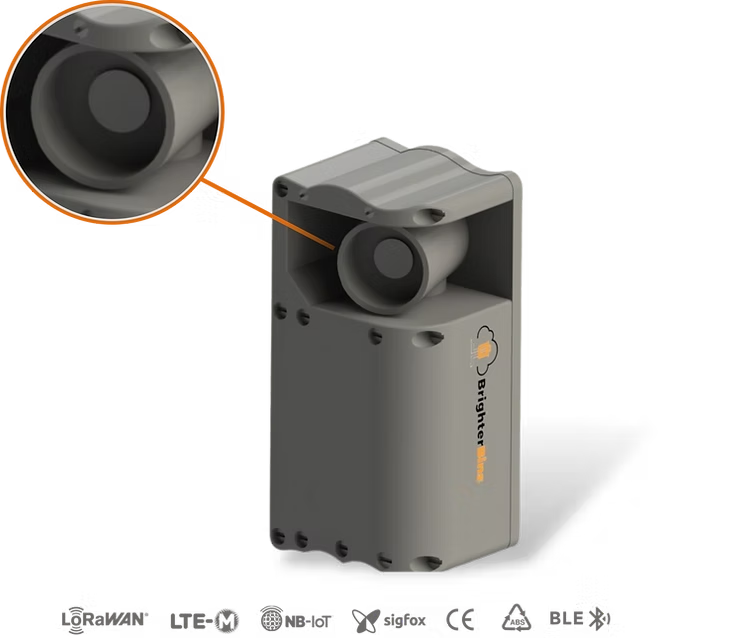Revolutionising Waste Audits with Smart Technology
- Joe Leech
- Jul 1, 2025
- 5 min read
Updated: Sep 16, 2025
Introduction to Smart Waste Management
In the pursuit of sustainability and responsible resource management, waste audits have become essential tools for businesses, local councils, and facilities management across Australia. Whether in a corporate office, school, hospital, or manufacturing site, understanding waste generation and management can drive significant environmental and economic benefits.
Emerging technologies like camera-based artificial intelligence (AI) and smart bin sensors have made waste audits smarter, faster, and more accurate than ever. Leading this innovation in Australia is SmartEnds Australia, a company that combines AI vision systems with smart waste monitoring tools to create real-time, actionable data for smarter waste decisions.
In this blog post, we’ll explore:
What is a waste audit?
Why are waste audits important?
The key benefits of conducting waste audits
Challenges of traditional auditing methods
How camera AI and smart bin sensors revolutionize the process
How SmartEnds Australia is leading the way
What Is a Waste Audit?
A waste audit is a systematic analysis of the waste stream generated by an organization or facility. The goal is to understand:
What types of waste are being generated (e.g., paper, plastics, organics, e-waste)
The volume or weight of each category
How much waste is being recycled, composted, or sent to landfill
Where contamination is occurring (e.g., recyclables in landfill bins or food waste in recycling)
A proper waste audit usually involves collecting and sorting waste over a specified period, often broken down into daily or weekly volumes. Auditors then compile this data to identify patterns, inefficiencies, and opportunities for improved waste diversion.
Why Are Waste Audits Important?
Waste audits serve as the backbone of any sustainable waste management strategy. They offer data-backed insights into waste behaviors and provide the foundation for initiatives such as:
Reducing landfill costs
Improving recycling rates
Cutting greenhouse gas emissions
Enhancing compliance with waste regulations
Increasing staff and tenant awareness around sustainability
For councils and large property groups in Australia, waste audits are now essential to achieving National Waste Policy goals and supporting circular economy initiatives.
Benefits of Conducting Waste Audits
1. Identifying Waste Reduction Opportunities
A waste audit can reveal surprising information—such as how much recyclable material is being incorrectly disposed of or how much food waste could be diverted to compost. This allows organizations to develop smarter waste handling systems and procurement decisions.
2. Cost Savings
Improperly managed waste equals unnecessary expenses. Businesses often pay landfill tipping fees for materials that could have been recycled for free or cheaper. Audits help identify these losses and offer cost-effective solutions.
3. Compliance and Certification
Waste audits are increasingly required for environmental certifications such as NABERS, Green Star, or ISO 14001. They also help ensure compliance with local council or EPA regulations regarding commercial waste generation and disposal.
4. Improved Operational Efficiency
Understanding the waste flow within a facility can highlight areas of inefficiency. Are bins being emptied too frequently? Is waste being generated unnecessarily in specific departments? Audits reveal inefficiencies that can be addressed operationally.
5. Better Staff Engagement
Data from audits can be turned into compelling visual reports that educate and engage employees. When staff see the real impact of their habits, they're more likely to participate in waste reduction initiatives.
Limitations of Traditional Waste Audits
Despite their importance, traditional waste audits can be:
Time-consuming and labor-intensive: Manually sorting through bags of garbage is unpleasant and slow.
Inconsistent: Results can vary depending on who performs the audit and how data is recorded.
Limited in scope: Audits often capture only a snapshot in time, lacking insight into daily or seasonal waste patterns.
Reactive instead of proactive: Data is reviewed after the fact rather than in real time.
This is where AI-powered cameras and smart bin sensors come into play.
Smart Waste Management: Enter AI and Sensor Technology
Modern waste audits are undergoing a revolution, powered by artificial intelligence and IoT (Internet of Things) technology.
Camera AI: Real-Time Waste Classification
Camera AI systems use computer vision to identify and categorize waste materials as they are disposed of. These AI cameras can be installed at waste disposal points—bins, chutes, compactors—to provide:
Automated waste sorting detection
Real-time contamination alerts
Visual data logs of what’s being thrown away
Waste behavior analytics over time
These systems drastically reduce the need for manual inspections and provide far more accurate, consistent, and continuous monitoring.
Smart Bin Sensors: Intelligent Waste Monitoring
Smart bin sensors, often fitted inside or near waste containers, use ultrasound, infrared, or pressure sensing to track:
Fill levels in real time
Temperature spikes (fire risk detection)
Motion or tampering alerts
Overflows or missed collections
These sensors provide critical operational data and help optimize collection routes, frequency, and bin placement.
How SmartEnds Australia Is Leading the Waste Tech Revolution
SmartEnds Australia is at the forefront of this innovation, delivering smart waste solutions that combine AI vision, IoT sensors, and advanced analytics. Here’s how their technology is streamlining waste audits across Australian industries:
1. SmartEnds Camera Vision AI
SmartEnds' proprietary Camera Vision AI can identify what waste is being disposed of, when, and where. This system offers:
High-resolution video footage analyzed by AI in real time
Object recognition for waste categories (e.g., plastic bottles, pizza boxes, food waste)
Contamination alerts when recycling or organics are compromised
Waste composition tracking over time and per location
With this data, businesses can pinpoint problem areas and implement targeted behavior-change campaigns.
2. SmartEnds Smart Bin Sensors
The SmartEnds sensor suite includes:
Ultrasonic sensors to measure fill levels
Motion and tamper detection
Temperature monitoring for fire safety
Battery-powered, long-life devices ideal for indoor and outdoor bins
These sensors transmit data wirelessly to a central dashboard, giving facilities managers full visibility over their waste system in real time.
3. BrighterBins Cloud Platform
All SmartEnds hardware integrates into their BrighterBins platform—a cloud-based dashboard where users can:
View real-time bin status
Track waste volumes over days, weeks, and months
Receive automated alerts and analytics
Optimize pickup schedules using AI routing suggestions
Export reports for compliance and performance tracking
This platform transforms reactive waste management into proactive, data-driven resource planning.
Use Cases in Australia
Commercial Buildings
In large office towers, AI cameras and bin sensors allow property managers to track tenant waste behaviors across floors. This data supports ESG reporting and enhances Green Star certifications.
Retail & Hospitality
In busy food courts and hospitality venues, SmartEnds' camera systems detect food vs. packaging waste to reduce contamination in compost streams—key for councils mandating food waste diversion.
Universities & Campuses
Educational institutions benefit from detailed waste behavior analytics across various buildings and departments, improving student awareness and infrastructure planning.
Local Councils
SmartEnds solutions help councils monitor public bin usage, reduce overflow issues, and provide residents with data-driven feedback on waste separation and recycling.
The Environmental Payoff
The implementation of smart waste technology doesn’t just improve operations—it plays a key role in Australia’s transition to a circular economy. By reducing landfill volumes, improving recycling quality, and supporting reuse strategies, smart audits help:
Cut down on greenhouse gas emissions
Extend the life of landfills
Support Australia’s 2030 waste reduction targets
Promote producer responsibility and eco-design
Final Thoughts: The Future of Waste Audits Is Here
In today’s fast-paced, data-driven world, traditional waste audits are no longer enough. Businesses, councils, and institutions across Australia need smarter, scalable solutions—and that’s where SmartEnds Australia delivers.
With AI-powered cameras, sensor-equipped bins, and advanced data analytics, waste audits are evolving into real-time waste intelligence platforms that enable better decisions, lower costs, and greater sustainability.
Ready to revolutionise your waste audits?
Visit SmartEnds Australia to explore how your organization can adopt cutting-edge waste audit technology tailored to the Australian landscape.








Comments